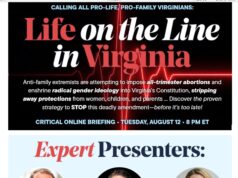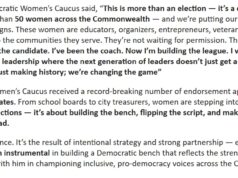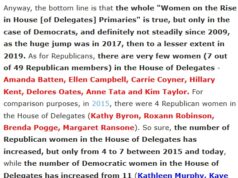by Anthony Flaccavento
The flood of revelations of sexual harassment, abuse and sometimes assault perpetrated by powerful men against women, often in their employ, has been horrifying. Disheartening too, given that we’re more than 40 years beyond our nation’s first public grappling with the idea that women were equal in capability to men and deserving of the same opportunities and respect. In fact, what we seem to have is an epidemic of disrespect of the most fundamental kind, in which women, whatever their skills and intellect, are still valued for their bodies, still presumed to be sexually available whenever and wherever a man chooses.
It’s made far worse by the fact that in the workplace, most women remain subordinate to men, dependent upon a power structure that dismisses or minimizes complaints of sexual harassment or abuse. From Hollywood to Congress to the media, not only is sexual harassment commonplace, but so too is a culture that sweeps it under the rug, that defers to men in powerful positions. This was the case with Roy Moore, Charlie Rose and Harvey Weinstein, among others. Violations followed by intimidation are enabled by a ‘boys will be boys’ culture. That’s the same attitude that dismissed candidate Trump’s bragging about grabbing women’s genitals as ‘just locker room talk’.
That major media and political figures are now garnering our attention, should not distract us from the uglier fact that sexual harassment and abuse permeate the wider workplace culture. A 2016 study by the Equal Employment Opportunity Commission estimated that at least one in four women experience sexual harassment at work, with that figure possibly two to three times higher. What’s more, reporting this harassment comes at a price: three fourths of women report some form of retaliation when they speak out, according to a 2003 study.
So, what’s to be done? The recent bipartisan legislation mandating training for all Congressional offices is a small but positive first step. Let me suggest a few more:
- Equal pay for equal work, along with more consistent promotion of women to top leadership positions. Women remain subordinate to men in most occupations, including in how much they earn, now roughly 80% of their male colleagues with the same credentials and experience. While this may seem unrelated to sexual harassment, it’s not. So long as women occupy the lower rungs of professions and receive less pay, they remain less than equal, with less prestige and power. That surely contributes to the notion that they can be exploited in other ways.
- Ending the increasingly widespread use of so-called non-disclosure clauses. These corporate-friendly employment agreements enable companies to take advantage of their workers in all kinds of ways, providing a generic CYA for many forms of bad behavior. That includes sexual misconduct, and as we know from cases against Bill O’Reilly and others, it allows such behavior to continue in secret for years.
- End the gross disparities in sentencing. When Marissa Alexander fired a warning shot to ward off her estranged husband, she received a twenty-year prison sentence. Efforts to evoke Florida’s ‘Stand Your Ground’ law in her defense were tossed out by the judge. This, in spite of the fact that she had a restraining order against him because of prior abuse, that he’d been threatening her, and that no one was shot or injured in any way. It’s shameful that this kind of double standard for women who stand up to domestic or sexual violence is not uncommon.
- A new approach to ‘family life’ education for boys and young men, based not on denying our masculinity, but focused on empathy and respect for others, particularly girls and women. Can we imagine a culture where being “manly” does not include being dominating, violent or overpowering? I think so.
We have a moment for a cultural and political course correction here, one in which men and women, for all our differences, really do end up on a level playing field. But that can’t happen until we acknowledge that disrespect of girls and women permeates our culture and economy; that misogyny – hatred of or contempt for women – is more than a problem of personal prejudice. Let’s keep talking about this problem, and more importantly, take bold steps that lead to real change.
Anthony Flaccavento, a farmer and small business owner from Abingdon, is running for Congress in Virginia’s 9th District. He is the author of Building a Healthy Economy from the Bottom Up: Harnessing Real World Experience for Transformative Change.














